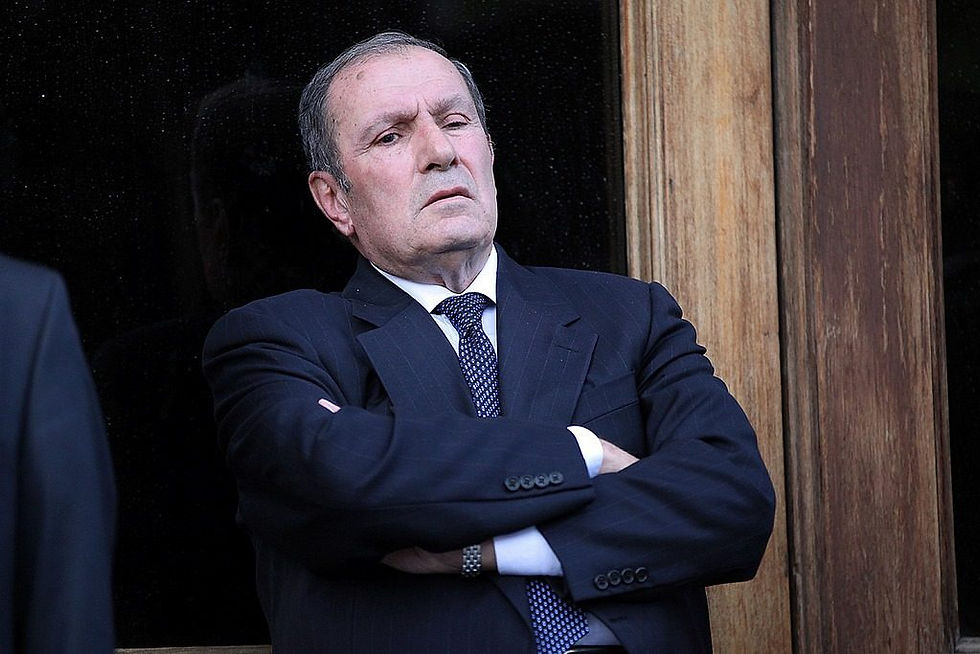Levon Ter-Petrosyan Rejects Link to Pashinyan’s Karabakh Policy, Defends Armenia and Artsakh’s Struggle
- The Armenian Report Team

- Sep 24, 2025
- 3 min read

Armenia’s first president and Armenian National Congress (ANC) leader, Levon Ter-Petrosyan, has once again spoken out about the policies that shaped the Karabakh issue. Speaking to reporters, Ter-Petrosyan made it clear that his approach to Artsakh had nothing to do with Prime Minister Nikol Pashinyan’s agenda.
“My Karabakh policy has nothing to do with his policy,” he said, distancing his leadership years from the decisions taken by Pashinyan in recent times.
For years, Armenian leaders have faced the difficult challenge of defending Artsakh from Azerbaijan’s aggression and constant threats of war. Ter-Petrosyan was the first to insist that any solution must protect the rights of the Armenian people of Artsakh. Today, he stressed that Pashinyan destroyed the principles of compromise when, in 2019, the Prime Minister declared in Stepanakert: “Artsakh is Armenia and that’s it.” Ter-Petrosyan believes this statement provided Baku with an excuse for new attacks.
“He destroyed those theses when he declared in Stepanakert that ‘Artsakh is Armenia and that’s it,’ and he brought war,” he said, placing responsibility for renewed conflict on Pashinyan’s words.
The former president demanded transparency, urging Pashinyan to publish all official documents related to Nagorno-Karabakh. “Let him publish all the documents on Karabakh that he has at hand. I’ve said this a hundred times. If he publishes them, the debate will already be over, because everything is written there,” Ter-Petrosyan explained.

Armenia continues to face deep political debates about the 2018 revolution, the disastrous 2020 war, and the government’s choices in the years since. Asked whether he foresaw the outcome of the revolution that brought Pashinyan to power, Ter-Petrosyan compared it to a flood: unpredictable and destructive. “It was such a storm; the man succeeded. Whatever goal he had set, he achieved. That’s what should be evaluated—he reached his goal,” he said, while stressing that he has never considered Pashinyan his political heir.
When asked why he has recently increased his criticism, Ter-Petrosyan gave a simple response: “I thought it was necessary, so I spoke. What’s the problem?”
The ANC leader did not give a direct answer regarding whether his party would participate in the upcoming parliamentary elections, instead pointing to his deputy, Levon Zurabyan, for details.
Earlier, Ter-Petrosyan had also condemned Pashinyan’s slogan “Artsakh is Armenia and that’s it,” calling it bombastic rhetoric that turned into a declaration of war against Azerbaijan. In his view, these words created a situation where Armenia and Artsakh faced overwhelming attacks, resulting in defeat on the battlefield. For decades, Azerbaijan has refused any peaceful settlement that secures Artsakh’s right to self-determination. Instead, Baku continues to use military force and threats of violence against Armenians living in their homeland.
The exchange of criticism between Armenia’s first and current leaders has only grown sharper. Pashinyan recently accused Ter-Petrosyan of sending Armenian soldiers beyond internationally recognized borders after the Alma-Ata Declaration. In turn, Ter-Petrosyan has called on Pashinyan to free archbishops and businessman Samvel Karapetyan from detention, shows what he sees as unjust treatment of prominent Armenians.
The clash between these two leaders comes at a time when Armenia is still recovering from war, displacement, and the forced exodus of Artsakh’s Armenian population. Azerbaijan’s ongoing hostility, military threats, and refusal to recognize Artsakh’s rights continue to show that Baku seeks conquest, not peace.
—
Support independent reporting from the region by subscribing to The Armenian Report. Our team is funded solely by readers like you.






Comments